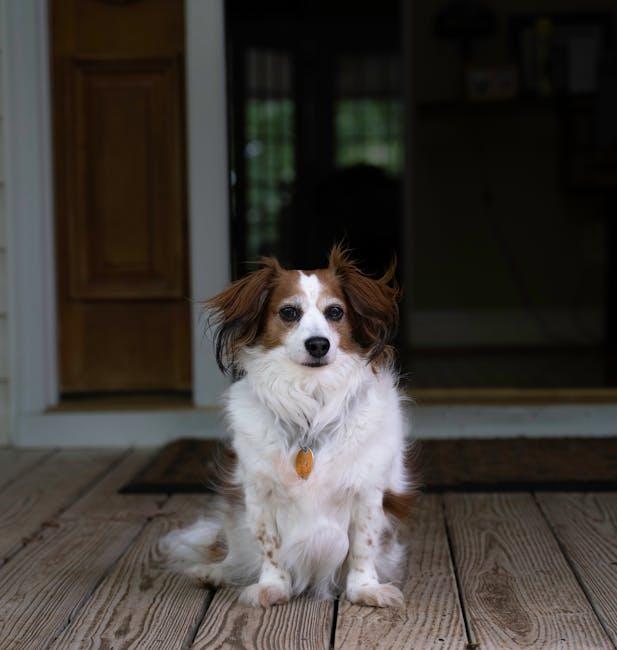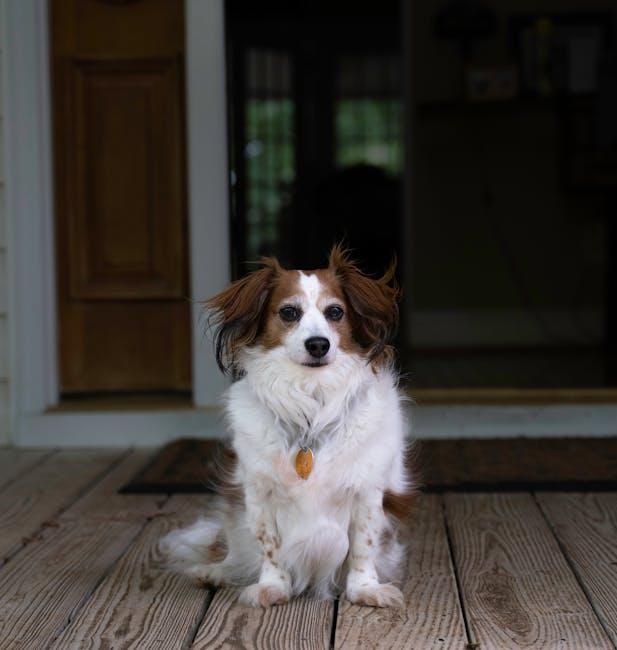In a bustling park, a golden retriever named Max wagged his tail, greeting every passerby with boundless enthusiasm. Children giggled as he playfully chased after a frisbee, while adults marveled at his gentle demeanor. Unlike any other breed, golden retrievers are renowned for their friendly nature, making them perfect companions for families and individuals alike. Their loyalty, intelligence, and affectionate spirit create bonds that last a lifetime. If you’re seeking the friendliest kind of dog, look no further than the golden retriever—your heart will thank you!
Contents
- Understanding the Traits of the Friendliest Dog Breeds
- Top Recommendations for Family-Friendly Dogs
- Socialization and Training: Key Factors in Developing a Friendly Dog
- The Benefits of Choosing a Friendly Dog for Your Lifestyle
- Q&A
Understanding the Traits of the Friendliest Dog Breeds
When it comes to selecting a canine companion, understanding the characteristics that define the friendliest dog breeds can significantly enhance your experience. These breeds are often characterized by their affectionate nature, making them ideal for families, singles, and seniors alike. Their sociable demeanor allows them to thrive in various environments, whether it’s a bustling household or a quiet apartment. Friendliness in dogs is not just about their behavior towards humans; it also encompasses their interactions with other pets and their adaptability to new situations.
One of the most notable traits of friendly dog breeds is their eagerness to please. Breeds such as Golden Retrievers and Labrador Retrievers are renowned for their loyalty and willingness to engage with their owners. This eagerness often translates into a strong desire to learn, making training sessions enjoyable and productive. Their playful spirit and gentle disposition make them excellent companions for children, ensuring a harmonious household where laughter and joy abound.
Another essential trait of these breeds is their social intelligence. Friendly dogs are typically more attuned to human emotions and can sense when their owners are happy, sad, or stressed. Breeds like Beagles and Cavalier King Charles Spaniels are known for their empathetic nature, often providing comfort and companionship when it’s needed most. This emotional connection fosters a bond that goes beyond mere companionship, creating a deep, fulfilling relationship between dog and owner.
Lastly, the adaptability of friendly dog breeds plays a crucial role in their appeal. Many of these dogs, such as Poodles and Boxers, can easily adjust to various lifestyles and environments. Whether you live in a bustling city or a serene countryside, these breeds can thrive as long as they receive adequate socialization and exercise. Their versatility ensures that they can be the perfect fit for a wide range of families and individuals, making them a popular choice for those seeking a loving and loyal companion.
Top Recommendations for Family-Friendly Dogs
When it comes to choosing a dog that fits seamlessly into a family environment, certain breeds stand out for their friendly demeanor and adaptability. These dogs not only thrive in a bustling household but also bring joy and companionship to every family member. Here are some breeds that are renowned for their family-friendly traits:
- Labrador Retriever: Known for their gentle nature and playful spirit, Labradors are often considered the quintessential family dog. They are highly trainable, love to engage in activities, and are incredibly loyal.
- Golden Retriever: With their friendly disposition and intelligence, Golden Retrievers are excellent companions for children. They are patient, affectionate, and thrive on social interaction, making them perfect for family life.
- Beagle: Beagles are small to medium-sized dogs with a curious and friendly personality. They are great with kids and have a playful nature that keeps the family entertained.
- Bulldog: Bulldogs are known for their calm demeanor and affectionate nature. They are great companions for children and adapt well to various living situations, making them ideal for families.
In addition to breed characteristics, it’s essential to consider the individual dog’s temperament and how they interact with children. Many mixed-breed dogs also exhibit wonderful family-friendly traits. Adopting from shelters can lead to finding a loving companion that fits your family’s needs perfectly. Look for dogs that have been socialized well and have a history of positive interactions with kids.
- Poodle: Available in standard, miniature, and toy sizes, Poodles are not only intelligent but also highly trainable. Their friendly and energetic nature makes them a great fit for active families.
- Cavalier King Charles Spaniel: This breed is known for its affectionate and gentle temperament. They are great with children and love to be part of family activities.
- Boxer: Boxers are playful and energetic, making them perfect for families with active lifestyles. Their loyalty and protective nature also provide a sense of security.
- Newfoundland: Known for their gentle giant persona, Newfoundlands are incredibly patient and loving, making them excellent companions for children.
Ultimately, the best family-friendly dog is one that matches your family’s lifestyle and energy level. It’s crucial to spend time with potential pets before making a decision, ensuring that their temperament aligns with your family’s dynamics. Training and socialization are key components in fostering a positive relationship between your dog and family members, especially children. By choosing a breed known for its friendly nature and investing time in training, you can create a harmonious environment where both your family and your new furry friend can thrive.
Socialization and Training: Key Factors in Developing a Friendly Dog
When it comes to nurturing a friendly dog, socialization and training are indispensable elements that shape a dog’s temperament and behavior. Early exposure to various environments, people, and other animals can significantly influence a dog’s ability to interact positively with the world around them. By introducing your puppy to different experiences, you lay the groundwork for a well-adjusted adult dog that is comfortable in diverse situations.
Training plays a crucial role in reinforcing good behavior and establishing a strong bond between you and your dog. Positive reinforcement techniques, such as treats and praise, encourage your furry friend to engage in friendly behaviors. Consistent training sessions not only teach commands but also enhance your dog’s confidence, making them more likely to approach new experiences with an open heart. Consider incorporating the following into your training regimen:
- Basic Commands: Teaching commands like sit, stay, and come helps establish control and fosters a sense of security.
- Socialization Classes: Enrolling in puppy classes can provide structured opportunities for your dog to interact with others in a safe environment.
- Positive Reinforcement: Rewarding your dog for friendly interactions encourages them to repeat those behaviors.
Moreover, the importance of ongoing socialization cannot be overstated. Even after the puppy stage, continuing to expose your dog to new experiences will help maintain their friendly demeanor. Regular outings to parks, dog-friendly events, and playdates with other dogs can reinforce their social skills. Remember, a well-socialized dog is not only more likely to be friendly but also less prone to anxiety and behavioral issues, making them a joy to have around.
The Benefits of Choosing a Friendly Dog for Your Lifestyle
Choosing a friendly dog can significantly enhance your lifestyle, offering companionship and joy while seamlessly fitting into your daily routine. Friendly dogs are known for their sociable nature, making them ideal for families, singles, and seniors alike. Their affectionate demeanor can create a warm atmosphere at home, fostering a sense of belonging and emotional support that is invaluable in today’s fast-paced world.
Moreover, friendly dogs often encourage a more active lifestyle. Their playful and engaging personalities motivate owners to participate in outdoor activities, such as walks, hikes, and playtime at the park. This not only benefits the dog’s health but also promotes physical fitness and mental well-being for the owner. The bond formed during these activities can lead to a happier, healthier life for both parties.
In addition to physical benefits, friendly dogs can also enhance social interactions. They serve as natural icebreakers, making it easier to connect with other dog lovers in your community. Whether at the dog park or during a neighborhood stroll, a friendly dog can spark conversations and foster new friendships. This social aspect can be particularly beneficial for those who may feel isolated or are looking to expand their social circles.
the presence of a friendly dog can contribute to a more peaceful home environment. Their calm and loving nature can help reduce stress and anxiety, creating a soothing atmosphere. Many studies have shown that petting a dog can lower blood pressure and release endorphins, promoting relaxation. By choosing a friendly breed, you not only gain a loyal companion but also a source of comfort and joy that enriches your everyday life.
Q&A
-
What breeds are considered the friendliest dogs?
Some of the friendliest dog breeds include:
- Labrador Retriever – Known for their gentle nature and love for people.
- Golden Retriever – Friendly, intelligent, and devoted companions.
- Bichon Frise – Cheerful and playful, great with families.
- Beagle – Friendly and curious, they love to socialize.
-
Are mixed-breed dogs friendly?
Yes, mixed-breed dogs can be incredibly friendly! Their temperament often depends on their individual personality and upbringing. Many mixed breeds inherit the best traits from their parent breeds, making them affectionate and sociable companions.
-
How can I ensure my dog is friendly?
To promote friendliness in your dog, consider the following:
- Socialization: Expose your dog to various people, environments, and other animals from a young age.
- Training: Positive reinforcement training helps build confidence and encourages good behavior.
- Regular Exercise: A well-exercised dog is generally happier and more relaxed, leading to better social interactions.
-
Can a dog’s friendliness change over time?
Yes, a dog’s friendliness can change due to various factors such as age, health, and experiences. Regular socialization, training, and a loving environment can help maintain or improve a dog’s friendly demeanor throughout their life.
choosing the friendliest dog breed can enhance your life and strengthen your bonds with family and friends. By selecting a breed known for its sociable nature, you ensure a loving companion that brings joy and warmth to your home. Choose wisely!

大家好,我是彼得潘,專業的手法身體治療師。我喜歡探索和研究各種主題,並透過與人工智慧的合作分享專業、實用、有趣的文章。我們定期進行人工審核,以確保內容的準確性。如果您發現文章中有任何不準確的地方,請隨時與我們聯繫,我們會及時糾正。您可以透過 [email protected] 與我們聯繫。



